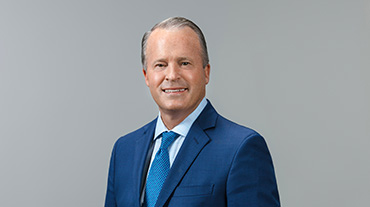Churchill Downs Foundation R.E.I.N. Fund Donates $5,000 to Backside Learning Center for NTI Learning Hub
Louisville, KY (October 21, 2020) – The Churchill Downs Foundation Relief For Equine Industry Needs (R.E.I.N.) Fund recently announced that it was able donate $5,000 to the Backside Learning Center (BLC) at Churchill Downs Racetrack, a nonprofit that provides educational programming and social services to backside workers and families, for its recently opened NTI learning hub. The BLC’s JCPS Community Learning Hub is a home base for students who are learning virtually during this school year and is located in Beechmont Baptist Church. The BLC rents a full wing of the church, including six large classrooms, office space and several smaller tutoring rooms.
The space was already in use by the BLC as a satellite location for an after-school program for backside children, but was shuttered at the start of the COVID-19 pandemic. Over the course of the remainder of the 2019-20 school year, BLC staff worked tirelessly to help students engage with virtual learning. They spent endless hours on calls with JCPS teacher and administrators, as well as internet providers to advocate for reduced-cost internet. The team also solicited donated computers and tablets, as almost none of the families had devices or internet and workers’ children were not able to engage in school. By the end of the school year, nearly all of the families had some sort of donated device as well as home internet.
During the summer, the BLC made the decision to reopen at Beechmont as a JCPS Community Learning Hub for the 2020-21 school year. Many of the families no longer had internet, but more importantly, due to the work schedules of parents on the track and English predominantly being spoken as a second language at home, the students needed daily support to assist with technology troubleshooting and homework help.
The hub at Beechmont opened in September after much preparation to ensure readiness and safety for all. Today, they operate 11 a.m. – 5 p.m. Monday-Thursday, serving 35 students daily. Through a partnership with Dare to Care, which Churchill Downs Racetrack helped subsidize with a $2,000 donation, lunches are provided to each student as well. In addition to academic help, students are engaged in outdoor activities and social and emotional developmental work.
With the $5,000 donation from Churchill Downs Foundation’s R.E.I.N. Fund, the hub will be able to provide individual learning kits to each child in order to best meet them where they are in their academic process. Additionally, the donation helps cover the expenses associated with renting the satellite space and keeping it routinely cleaned and sanitized.
The R.E.I.N. Fund, or Relief for Equine Industry Needs, was established by the Churchill Downs Foundation in response to the growing needs in the racing industry as a result of the COVID-19 pandemic and the subsequent interruption of customary racing operations. The emergency relief fund specifically addresses the needs of backside communities by providing meals, micro-grants and financial assistance with emergency needs as well as the fulfillment of essential care for horses.
About Churchill Downs Incorporated
Churchill Downs Incorporated is an industry-leading racing, online wagering and gaming entertainment company anchored by our iconic flagship event, the Kentucky Derby. We also own and operate three pari-mutual gaming entertainment venues in Kentucky: Derby City Gaming; Oak Grove Racing, Gaming, and Hotel; and Newport Racing and Gaming. Our online wagering business owns and operates TwinSpires.com, the largest and most profitable online horse racing wagering platform in the U.S., and BetAmerica, an online sports betting and iGaming platform in the U.S. We are also a leader in brick-and-mortar casino gaming with approximately 11,000 slot machines and video lottery terminals and 200 table games in eight states. Additional information about CDI can be found online at www.churchilldownsincorporated.com.
Information set forth in this news release contains various “forward-looking statements” within the meaning of the Private Securities Litigation Reform Act of 1995 (the “Act”), which provides certain “safe harbor” provisions. All forward-looking statements made in this news release are made pursuant to the Act. Forward-looking statements are typically identified by the use of terms such as “anticipate,” “believe,” “could,” “estimate,” “expect,” “intend,” “may,” “might,” “plan,” “predict,” “project,” “seek,” “should,” “will,” and similar words, although some forward-looking statements are expressed differently.
Although we believe that the expectations reflected in such forward-looking statements are reasonable, we can give no assurance that such expectations will prove to be correct. Important factors that could cause actual results to differ materially from expectations include the following: the effect of economic conditions on our consumers’ confidence and discretionary spending or our access to credit; additional or increased taxes and fees; public perceptions or lack of confidence in the integrity of our business or any deterioration in our reputation; loss of key or highly skilled personnel; restrictions in our debt facilities limiting our flexibility to operate our business; general risks related to real estate ownership, including fluctuations in market values and environmental regulations; catastrophic events and system failures disrupting our operations; online security risk, including cyber-security breaches; inability to recover under our insurance policies for damages sustained at our properties in the event of inclement weather and casualty events; increases in insurance costs and inability to obtain similar insurance coverage in the future; inability to identify and complete acquisition, expansion or divestiture projects, on time, on budget or as planned; difficulty in integrating recent or future acquisitions into our operations; costs and uncertainties relating to the development of new venues and expansion of existing facilities; risks associated with equity investments, strategic alliances and other third-party agreements; inability to respond to rapid technological changes in a timely manner; inadvertent infringement of the intellectual property of others; inability to protect our own intellectual property rights; payment-related risks, such as risk associated with fraudulent credit card and debit card use; compliance with the Foreign Corrupt Practices Act or applicable money-laundering regulations; risks related to pending or future legal proceedings and other actions; inability to negotiate agreements with industry constituents, including horsemen and other racetracks; work stoppages and labor issues; changes in consumer preferences with respect to Churchill Downs Racetrack and the Kentucky Derby; personal injury litigation related to injuries occurring at our racetracks; weather and other conditions affecting our ability to conduct live racing; the occurrence of extraordinary events, such as terrorist attacks and public health threats, including the ongoing impact of the novel coronavirus (COVID-19 virus); changes in the regulatory environment of our racing operations; increased competition in the horseracing business; difficulty in attracting a sufficient number of horses and trainers for full field horseraces; our inability to utilize and provide totalizator services; changes in regulatory environment of our online horseracing business; number of people wagering on live horse races; increase in competition in our online horseracing; uncertainty and changes in the legal landscape relating to our online wagering business; continued legalization of online sports betting and iGaming in the United States and our ability to predict and capitalize on any such legalization; inability to expand our sports betting operations and effectively compete; failure to manage risks associated with sports betting; failure to comply with laws requiring us to block access to certain individuals could result in penalties or impairment with respect to our mobile and online wagering products; increased competition in our casino business; changes in regulatory environment of our casino business; and concentration and evolution of slot machine manufacturing and other technology conditions that could impose additional costs; and inability to collect gaming receivables from the customers to whom we extend credit.
Press Contacts
Nick Zangari
Vice President, Treasury, Investor
Relations & Risk Management
Phone: (502) 394-1157
Email: [email protected]



